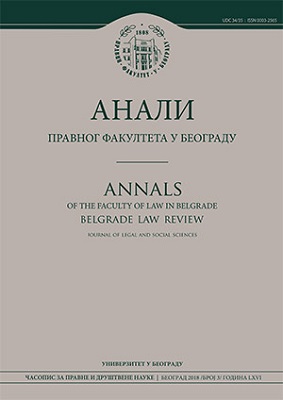Предуговор обезбеђен капаром код уговора о промету непокретности у праву Србије
Preliminary Contract Secured by Deposit in the Case of Transfer of Immovable Property in Serbian Law
Author(s): Dragor HiberSubject(s): Civil Law
Published by: Правни факултет Универзитета у Београду
Keywords: Transfer of immovable property; Preliminary contract; Fulfilment of the preliminary contract obligation; Deposit; Securing the preliminary contract obligation by deposit
Summary/Abstract: In the legal practice a preliminary contract often precedes the con clusion of the contracts on the transfer of immovable property, but de posit is also frequently stipulated both along with the preliminary contract and the final contract. These two concepts open numerous questions both in theory and in practice. The author analyses the details the parties have to agree upon if the preliminary contract is to emerge, the form of conclusion and especially the legal consequences of omission to execute the obligation to conclude the main contract. With respect to the latter, his position is that the idea that in such case a judicial judgement can replace the main contract can be accepted only if it is linked to the enforced execution of the decision ordering such conclusion and not as direct effect of the judgement. Analysing the deposit along the preliminary contract on the trans fer of immovable property, open issues were considered, including the permissibility and the usefulness of such contracting. In practice, the de posit is frequently stipulated in the preliminary contract against omission to fulfil the obligation from the final contract rather than from the pre liminary contract. This is not allowed by the law and the courts often pass such verdicts. The deposit along the preliminary contract actually does not have all the characteristics (functions) of the “standard” deposit: e. g. it cannot by definition be included into fulfilment of the obligation. In the light of the jurisprudence dilemmas, the author investigated whether the norms on the deposit and dedit are dispositional – namely, whether the parties may stipulate a different design. The general conclusion is that, in spite of the fact that the pre liminary contract is a complex and controversial concept, and although the reasons for the preliminary contracting could be achieved by other means (e. g. deferred condition or time-limit), with respect the tradition, it can remain an institution of contract law, but it is useful to re-examine and specify the rules on certain issues, for example, effects and enforced execution and other consequences. With respect to the deposit, no matter how it seems archaic and globally abandoned institution, in certain cases it may still be useful, especially because it is given in advance and not owed and especially if the parties are allowed, within the limits estab lished by the legal order, to adjust it to their needs.
Journal: Анали Правног факултета у Београду
- Issue Year: 66/2018
- Issue No: 3
- Page Range: 57-87
- Page Count: 31
- Language: Serbian

